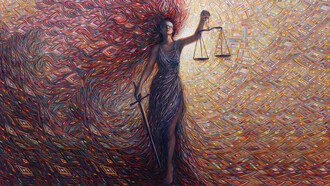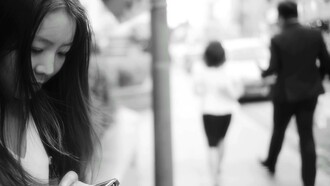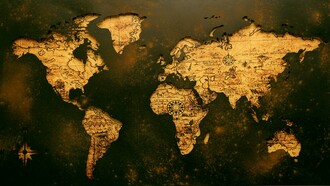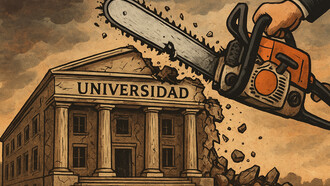I dare to speak of women’s rights today. I anticipate no plaudits, neither applause nor hearty agreement. I anticipate no joy at the realization that there is a feminist at work here. I am accustomed instead, after decades of this work, to accusations and minimalizations, to sarcastic and plainly aggressive responses.
I have been laboring in this field for decades and, although our crops grow strong and healthy, they are soon enough encroached upon by the poison-based removal of weeds from other fields. That is because our entire crop is considered to be composed of weeds by those with the power to make these decisions.
Although we women are a little more than half of the population, we are unfortunately the wrong half, the half that since the inception of the United States, and along with other colonized people, have had to beg, threaten and sue for our rights in a supposed democracy. If you have to ask for almost 250 years for equal rights, then you clearly don’t have them. If your slogan is “Women’s Rights Are Human Rights”, then embedded in that very statement is the acknowledgment that you do not have equal rights. It cannot be said more clearly or more frequently or more loudly than it is said by this popular slogan.
However, these cries still too often fall on deaf ears and uninformed or uncaring minds and hearts. In my youth, we feminists were subjected to shame because, in the view from the cultural eye, we were too young, too loud and too ugly. Now we are too old, too irrelevant and even uglier.
When I wrote my first 21st century blog on the psychology of women, the very first comment that I received informed me that I must weigh 300 lbs. As it happens, I do not, but should that matter? I think it does. I think standing up for ourselves as women does make us unattractive to the male gaze because a really attractive woman assumes a position other than standing. I, thus, confess to being, in every way that counts for the cultural gaze, an unattractive woman.
Furthermore, we are told, if we really pay attention, we will see that our goals have been met. We are allowed now to work legally in many previously unavailable professions, to write under our own names and even to own our own property in our own names. What more do we want than to be able to enter their clubhouses, albeit still sexualized, harassed and marginalized? Some, and only some, of us women become honorary men, as Cynthia Enloe and others have noted.
What more can we possibly want? And why do we think that our rights are as important as those of racial, ethnic and sexual minorities? Such a question is framed to diminish our case and to divide us from other colonized groups. We all deserve equal rights and there is a huge “but” to consider. To permit equal rights to all colonized groups in a patriarchal society means the obvious abolition of patriarchy. Patriarchy, by definition, is plain and simple a system in which men, in this case, white men, hold the power.
Sharing that power just a little can serve to preserve the power structure. Achieving equity abolishes the very system. And those in power know very well that the accomplishment of the goals of equality for women, for sexual and racial minorities, for the disabled and discarded, changes not just our lives, but their lives as well. It changes the world, which is just too much to ask, much less demand. It is as unattractive as a woman can be.
Instead, they let us in one at a time. They let us compete for that one position. From the patriarchal perspective, “Why another white man as a judge?” is not an important question. “Why a Black woman only and not the best candidate from all groups?” is a good question. “Why has it taken 200 + years to appoint the first Black woman?” is a question that only occludes their perspective and is, in that sense, not a question to be asked at all.
In the current war waged by patriarchy against patriarchy, by men against men, some Ukranian women are fighting alongside their men. From the masculine gaze, this is considered progress. Yet the feminist eye sees this not as progress, but as letting a few women into the boys’ club. The feminist eye also notices that the boy soldiers sent to do the work of violent and avaricious old men are busily looking for sex for free or for sale. Women are bearing the brunt of war in the other usual ways that women do. Women are trying to protect their children from men’s violence, as women do eternally in violent and warlike societies.
All this leads me to other non-masculine questions. Who has the right to wage war on women’s bodies? Whose voice is heeded? Who is deemed fully human and who must continue its pursuit?
In the country where I reside today, we vote soon for president between men who batter and men who harass women. Yes, we have been “given” the vote, but we are then left to choose between such men, between men who oppose women's rights and men to whom it does not even occur that women should have rights. We seek equality within corrupt systems rather than a peaceful change of systems. We women and our marginalized companions seek equality within corrupt systems and in that way support the very systems that we oppose.
We must learn not to seek equality because equality with such men in such systems should never be our goal. Instead, we should examine each change, each allegation of “progress,” which I regret I must now place inside quotation marks, for the actual effects of such proclaimed change. To plan our escape from the quotation marks, I suggest that you/we vigilantly examine our own biases, our own perspectives, what we permit our own eyes to see.
I ask you to pause and to think before reacting. I ask this on behalf of all the feminists for all the centuries who have sought equal rights for women and for the millions of women who are still deprived of their basic safety and humanity.















